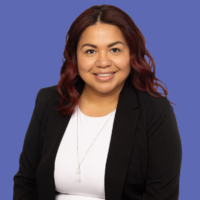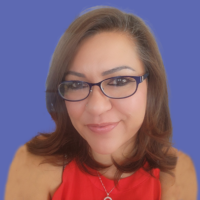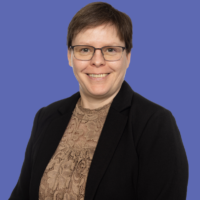Dave: Welcome, I am Dave Johnson, and I am the CEO of Modern Family Law. Modern Family Law is a national law firm with offices in four states, and we focus on modern solutions for today’s families. Here with me today are three actual live LLPs, and we’re very excited to have you guys join us. We have Selena Salinas, who is a Modern Family Law LLP up in Fort Collins, and we have Kris Freeman, who is a Modern Family Law LLP in Colorado Springs, and we have Veronica Gonzalez, who is an LLP with Juniper Law in Denver, if I remember right. Is that right, Veronica.
Veronica: Arvada.
Dave: Arvada, yeah.
Veronica: Yeah.
Dave: And we’re excited to have all three of you join us today to talk about the LLP program and how you got where you’re at today. So I want to kick it off with that and talk about the exam and see if this was what you guys expected. How did it feel? Was it what you thought it was going to be? Veronica, you want to start off?
Veronica: Well, I didn’t really know what to expect, so I just studied everything I could. Took the classes, had study groups, and I went in there real confident. And it was a breeze, pretty much. I’m not saying it was easy by all means, but I did a lot of studying. So nobody knew what to expect because it was the first exam, so it wasn’t that hard, I guess. I mean, it was, but with all the studying, it was great.
Dave: Yeah. What did you think of the questions? Do you think they were fair? Do you think that they were in line with the studying that you did, or were you surprised by them?
Veronica: Yeah, they were pretty good. There were a few that I didn’t study for for sure, but like I said, it was the first one. Nobody knew what to study for, nobody knew what to teach. It was just kind of, we were going in there blind with the core competencies, and so we went off of that and studied what we could. But for the most part, a lot of them were within what we do in our practice too. So as a paralegal, we’ve learned a lot of that just by being a paralegal in family law for so long.
Dave: Yeah. How about you, Selena? What did you think of the test?
Selena: I do agree with Veronica. We didn’t know what we were getting into. We didn’t have an example. I think they gave us three sample questions, but even that wasn’t really a good example of what we saw when we went in there that day. But I had been studying for this for a long time before we took the test, so we were studying for things that weren’t necessarily in the test. So it was good to refresh our minds and our knowledge and sharpen up in some ways. But it was also kind of nerve-wracking, just not knowing, am I studying the right things? Am I going in the right direction? Where do I need to focus my attention? And so it was super broad. And so some of it was super like, “Okay, I did this. I studied this, I know what I’m doing.” Some of the questions were surprising.
Dave: In what way?
Selena: Okay, I’ll be honest. There were a couple tax questions that I was not expecting that I was like, “Oh, I really need to go back and refresh on that.” Stuff like that, just questions I was not expecting to be in the test itself. Not bad. And I think I did pretty good, as best I could. I did pass, right? But yeah, just some of those surprising ones I wasn’t really ready for, or at least I didn’t expect to see.
Dave: Okay. So Kris, were you stressed out when you walked in the room? Tell me about that.
Kris: You know, It was one of those things where the anxiety, it was building and it was overwhelming. And by the time I got in there, I was like, “Just rip the band-aid off. Let’s just get it done.” I was so excited to get in there and start on it. I had studied for months and months and months. I would get up like at 4:00 in the morning, I would study until about 7:00, and then I would get ready to go to work. And I’d come home, and sometimes I would see stuff posted from the ethics course or from the advanced family law course, and I was like, “Oh my gosh, do I have it in me to actually open that when I get home?” And then it was the next day of opening it up and studying it again. So I did that for weeks and weeks and weeks.
And then we got the MEE questions. I went to that website and I pulled every single family law question that I could, and I wrote everything down. I didn’t look at the scores and stuff like that, but I would think to myself, “Okay, what statute should I reference here? How can I apply this? What applies here?” And then I would go through and I’d write all the statutes out, and I would write my question, I would write the answer, and then I would go through and read it and compare it to the statute, and then I’d go back and I would start all over again. It was just constant. It was ethics, advanced family law, questions, ethics, advanced family law. It was constant. And I had these set of flash cards that I had made, I think all total, each little bundle had 100 cards in it. And I think by the end of it I had 900 cards, but I had gone through them all, especially the ethics.
Yeah, the ethics portion was a little bit frustrating because we were only looking at the LLP rules. So when I went back and I looked at the attorney rules and I was reading the annotations, it was like, “Oh, well that makes sense. Why didn’t we just look there first?” And once I looked there, everything just clicked, and I was able to go in and write all the answers to my ethics questions without going through the test and trying to figure out, “Well, why did I get this one wrong? Why is this one right and that one’s wrong?” I was able to go and find all of those myself. So it was eye-opening, but it was also satisfying. So going into the test, I didn’t know what to expect, so I was relieved that it was what it was, because it wasn’t as difficult as I anticipated that it would be.
Dave: Well, that’s good. That’s surprising. I remember my flash cards for the bar exam were like this thick, and you just sit there and go through them breakfast, lunch, and dinner, every spare minute. So Veronica, tell me, how did you feel when you got the results? How did you get the results?
Veronica: Well, we got them by email, and a couple of my friends had called and said, “Hey, I got my results. I passed it, dude.” I was like, “Oh, my goodness.” I was all by myself. I was like, “Oh my gosh, I don’t want to open it alone.” So we stayed on the phone and opened it, and I was just super excited. I was a little stressed about the results. I didn’t know if I was going to pass because, like I said, it wasn’t as hard as I expected it to be, and I was like, “There’s got to be something wrong. Maybe I failed everything,” because I didn’t think it was as hard as I expected it to be. So I was super excited. We were all excited. Everybody that was in my little study group passed, so … So many people passed, the number was just outstanding for sure.
Dave: Do you feel ready now after the test? Do you think it covered the right things for you to go out and do the LLP, provide services directly?
Veronica: For the most part, yeah, and I also have a lot of help from the attorney I work with, and all the other attorneys I worked with before were willing to give me the guidance and the mentorship. And so yeah, I totally feel ready. I’m doing it.
Dave: Awesome. Awesome. Selena, what about you? How did you find out your results, and how did it feel, the anxiety waiting for the results?
Selena: Gosh, it was so nerve-wrecking waiting for the day, down to the hour, down to the minute, refreshing my email, refreshing my email. But when it finally came and I passed and I saw my results and the breakdown, it was a relief knowing that all of the hard work that I put into studying and to really working to better myself paid off. I felt, “Yes, I have arrived. I did it. That part’s done.” So it was a good feeling. And then I felt kind of tired because of, all the getting worked up over waiting for it got me a little tired.
Dave: Yeah. How did you celebrate, Kris?
Kris: How did I celebrate? I took a very deep breath and all the anxiety just fell out of me. I had agonized for weeks over questions that I was like, “Did they ask that? Did I answer that correctly? What exactly did they ask me?” And then I would wake up in the middle of the night and I’m like, “Wait, I know I got that wrong.” So it was constant. It was just this constant anxiety. So as soon as I saw I passed, it was like, “Oh,” so I could breathe. It was just this weight had just been lifted off of me, and it had been a long time coming. But then the next thing starts, right? It’s like, “Okay, well, what does that mean?”
Dave: Well, I know that Selena and Kris, you guys are talking to clients right now, and I think Veronica, you said you were out there doing it, so you’re probably talking to potential clients too. How have the potential clients responded to your description of what LLPs do? Let’s start with Veronica. How has that gone? What do the potential clients think?
Veronica: Well, it’s so new we have very few, but when we do talk to them about it, they’re pretty excited because we can do a lot for them at a lower rate. And so that’s exciting to them. They want to have cheaper attorney fees for sure, lower attorney fees. And as an LLP, since I can help them with a lot of different things, they’re pretty excited about it. they definitely need the help for sure, especially our clientele that we’ve been bringing in. And so they feel good that they can get the representation that they need at a lower rate. But then they also feel good because we have the attorney backing me up, so if I need anything, they’re right there to help.
Dave: Right, right. Selena, how about you? How are the callers responding to your conversations about what an LLP is?
Selena: Sure. So I think most importantly, it’s important to have a good description already in mind, so that way when you’re explaining to them, you can explain it clear and explain it well so they understand what an LLP is, because most people don’t know what that is. But I feel like all of our PCs, after talking to them and explaining my role, what I can do and how I’m different than an attorney, and also same in some ways, they’re very receptive to this program, and it’s been really positive. That’s the feedback I’m getting, I’m getting a lot of acceptance and questions certainly, but only out of curiosity. Not so much that, “Well, how are you going to help me versus a traditional attorney?” It’s never that way. It’s been really nice to be able to talk to them and teach them about what we are and what we can do to help them.
Dave: Are you seeing the same thing, Kris? How do you explain it to them?
Kris: I am echoing everything that Veronica and Selena have said. Some of my clients haven’t ever been through the divorce process before, and so when I do explain to them that for the most part we would be doing the same exact thing for them as the attorney would, and they’re very receptive to that, considering so many people have heard horror stories about the cost of divorce and just the toll that it takes on you and your finances. You walk out of your divorce, and it’s like, “I guess I file for bankruptcy now?” But on the flip side of that coin, I have post-decree people coming in where they want to modify, and that they spent $50,000 on their divorce the first time around. And so when I’m talking to them about the things that they want to accomplish, it’s not really time intensive, really. You’ve got the hard part out the way, you’re untethered from the other person.
Post-decree, they’re really excited to get in there and file their motions to modify, especially with our rates, because they’re still, in some cases, recovering from their divorce. $50,000 is a lot. That’s a huge hole to dig out of.
Dave: Yeah, for sure. Well, what about, I’ve been privy to some of the confusions about procedures and requirements and expectations for LLPs coming from the people who created this whole program. Tell me about any frustrations you’ve had and how you resolved it in that regard. You are pioneers, you’re pathfinders, you’re creating the path for everybody else. What procedural obstacles have you encountered as part of that? Veronica?
Veronica: As far as for what? I haven’t really stepped into any obstacles because it’s so new. It’s only been a month. Getting the malpractice insurance going is something that Luis was working on for us. I got into CSEF, or [inaudible 00:14:07] we were calling it, to file under my own name. I got my bar card. So I think everything is falling into place easily. And we just roll with the punches as they come. We’re a small firm too, and we’re brand new, so we’re making our procedures as we go. It’s going well, I think.
Dave: Good. Well, what about you, Selena? How about any obstacles or roadblocks, either from the firm or from the courts or from the statute itself? Tell me about any obstacles you’ve seen.
Selena: So I think you know because you’ve helped me discover this too, is the volunteering with the legal communities. The roadblocks I have had have been, I don’t know if they’re unwilling or just not yet ready to engage and to interact with us in that way. Legal clinics, ask a lawyer nights, volunteering opportunities. I know Kris and I have put ourselves out there because we want to put our name out there and that we’re here and that we’re ready to go and we’re ready to help and serve clients. So that’s probably the only roadblocks that I have had so far. I’m sure more are coming, especially as the months go down and we will come across some issues, I’m sure.
Dave: So Kris, do you expect any roadblocks in going to court or from opposing counsel?
Kris: I don’t know what to expect, really. I had gone to a domestic relations bench lunch at El Paso County this week, and there was a lot of discussion about, do you issue a case management order with specific instructions for the LLP? What special instructions do you have for your LLP if they accompany the client to court? I think it’s just going to be growing pains. And again, I think we’re just going to have to cross that bridge when we come to it. I think that for the most part, we’ve all been through the wringer as far as case management orders and stuff as a paralegal. So I don’t know that that’s necessarily any new frontier that we have to get through in that instance. But I anticipate growing pain along the way, as we get more and more opposing counsels as opposed to pro se parties or even LLPs on the other side. So it’ll be a learning experience for everyone. For everybody that I’ve encountered, everybody’s been very gracious and really eager to learn, so it’ll be a good experience.
Dave: Yeah, I agree with you that everybody is still trying to figure out how this works.
Kris: For sure.
Dave: And as long as they go into it with an open mind and a welcome attitude, hopefully we can all get through it, right? Veronica, what advice would you give to paralegals that are out there contemplating whether to try the LLP test and become an LLP?
Veronica: Well, first of all, when I found out about this is joining RMPA, which is the Rocky Mountain Paralegal Association, that’s up here in Denver. It’s for the whole state for sure, but I know Colorado Springs has their own, but they have a lot of resources for us, and emails went out all the time. I would recommend finding other paralegals who are interested and collaborating with them, studying with them. They’ll be your biggest support system for sure. And then if your attorneys are very supportive in your firm, start asking questions. Start sitting in on initial consultations or ISCs, or ask about the mediation process. Just try to dive in as much as you can, because being a paralegal is a lot different than being an attorney, and that’s what we have to learn, because we’re pretty much doing the same thing as an attorney in this instance for now. So just ask a bunch of questions and get familiar.
Dave: Anything you want to add to that, Selena?
Selena: I think I put a message out a while back, do it. We need you. I know that I talked privately to some paralegals about the program who were super nervous about doing it with the first round and wanted to see how it would go with us before they tried. And that’s okay because it’s super new, and so I get their nervousness about it. But if you have the experience, which most of the paralegals that I work with do, or that I have worked across of do, and if you’re passionate about helping people, I say go for it. That’s my advice. Go for it.
Dave: All right. Kris, your thoughts?
Kris: I was thinking about this just before I was studying for the exam. I think my best advice would be to read your statute book, know your statutes, know the rules of civil procedure, make sure your local court rules, your 121, decorum, and really treat your paralegal journey up to this point as sort of an internship. Because once you get licensed, it’s your license on the line now. It’s not just you get to prop your attorney up, it’s you. So take it serious and really dig deep, because it’s an important service. And our local communities need it. So that would be my advice.
Dave: Great. Great. How about feedback from the legal community? I sat through a couple of online hearings on this topic, and they were quite heated. So I’m curious, did you feel any of that heat? Are you feeling any of that heat? What are your thoughts, Veronica?
Veronica: Actually, I haven’t, but I do know a few LLPs who have, who have left their firms because there’s no support. But I’ve actually gotten a lot of positivity from everybody that I’ve surrounded myself with in my journey to become an LLP in the legal community. And I’ve actually done some volunteering with the Metro Volunteer Lawyers, and they’re very receptive to the LLPs. And I’ve signed up to do a couple more sessions to do non-contested hearings for them. And they’re just very positive about everything and receptive to the LLP’s roles. And so it feels good, and it gives me more confidence too knowing that I have the support and the backing of the legal community. And I know it’s not the same for every LLP, but with firms like ours who are very supportive, I think that we can be the support system for the LLPs who are not getting that.
Dave: Okay, great. That’s good to hear. Selena, how’s your experience been?
Selena: It’s been very welcoming and supportive as well. Also with the firm, but also with people that I have shadowed for mediations, for status conferences. Others have, opposing councils that I work with also on cases that have been very respectful and professional, and that’s always welcome. So no negative experiences yet, but I think all of us collectively, we’re bracing for that because we know that not everybody is excited about us. But yeah, so so far it’s been all great.
Dave: That’s good to hear. Kris, what about you? What’s your impression been? I know you were down there with Craig, and he’s a big fan of the LLPs and the LLP program. But in general, outside of that, what do you think?
Kris: I think that there are quite a few local firms that have LLPs that are still serving in a dual role as paralegal and LLP, and they’re kind of, I don’t want to say sitting second chair to their attorneys. They do have attorney oversight, and they have been very gracious in their support of their staff pursuing this. And as far as maybe opposing counsels, those people have been amazing as well. I haven’t gotten treated poorly or anything like that. So I’m excited to move forward in this, and hopefully you get some resolution for these people where they might not otherwise, the big scary opposing counsel is out to get me. So I’m looking forward to that, working with everybody else and just letting everybody know, “No, this is going to be okay, everyone.”
Dave: So yeah, kind of in line with that sentiment, there are some lawyers who are very anxious about this program, not excited about it. What would you tell those lawyers about the program so far? Veronica?
Veronica: Just give it a chance. See how it progresses and how it evolves. And maybe you might be surprised at what we can do and how we can help, and know that the community of people, that our clients are not going to be lost on you as an attorney, because you guys get different kinds of clients. So I just give it a chance, be more open about it and positive.
Dave: Selena?
Selena: I agree. I was going to say, just be open and let us show you that we know what we know and what we can do. And having us on the other side is going to help maybe even settle the case versus somebody having to do it pro se and fumbling along with the court process. So I really hope that they do change their mind about us. We want them to see us as equals in that regard. So yeah.
Dave: Okay. Yeah. And Kris, any thoughts that you’d want to pass on to attorneys who might not be welcoming?
Kris: I guess my stance on that would be, well, you can deal with me or you can deal with my client. And if you’ve done that up to this point, have you really made any progress? That’s the whole point of us being able to jump in and help out, is to facilitate some sort of resolution, or at least streamline the process so that you’re not filing your JTMC the night before because the pro se party thinks that you’re out to get them. So I don’t anticipate that it’s going to be that big of a deal. I hope not, but we have to strive for excellence. We have to set the bar and we have to set the tone, and we have to prove to them that we know what we’re doing. And I think that once we get over that hump, I think that it’ll be smooth sailing.
Dave: Awesome. Well, I know all three of you, and I know that you’re going to do an amazing job for these clients, and they’re very lucky to have you. So any last thoughts before we wrap it up? No?
Veronica: I don’t know.
Dave: Well, you guys are amazing. Really, you’re the first people in Colorado to be out there doing this, and that is quite an honor. It took a lot of bravery to step out and put it all out there, and I am so excited to see this program really take off. And the three of you are at the forefront of all of that. So thank you for that. And yeah, let’s do this again. I appreciate all of your time this afternoon, and yeah, let’s keep the program moving forward.
Veronica: Yeah, for sure. Thanks.
Dave: All right. Thank you all.








